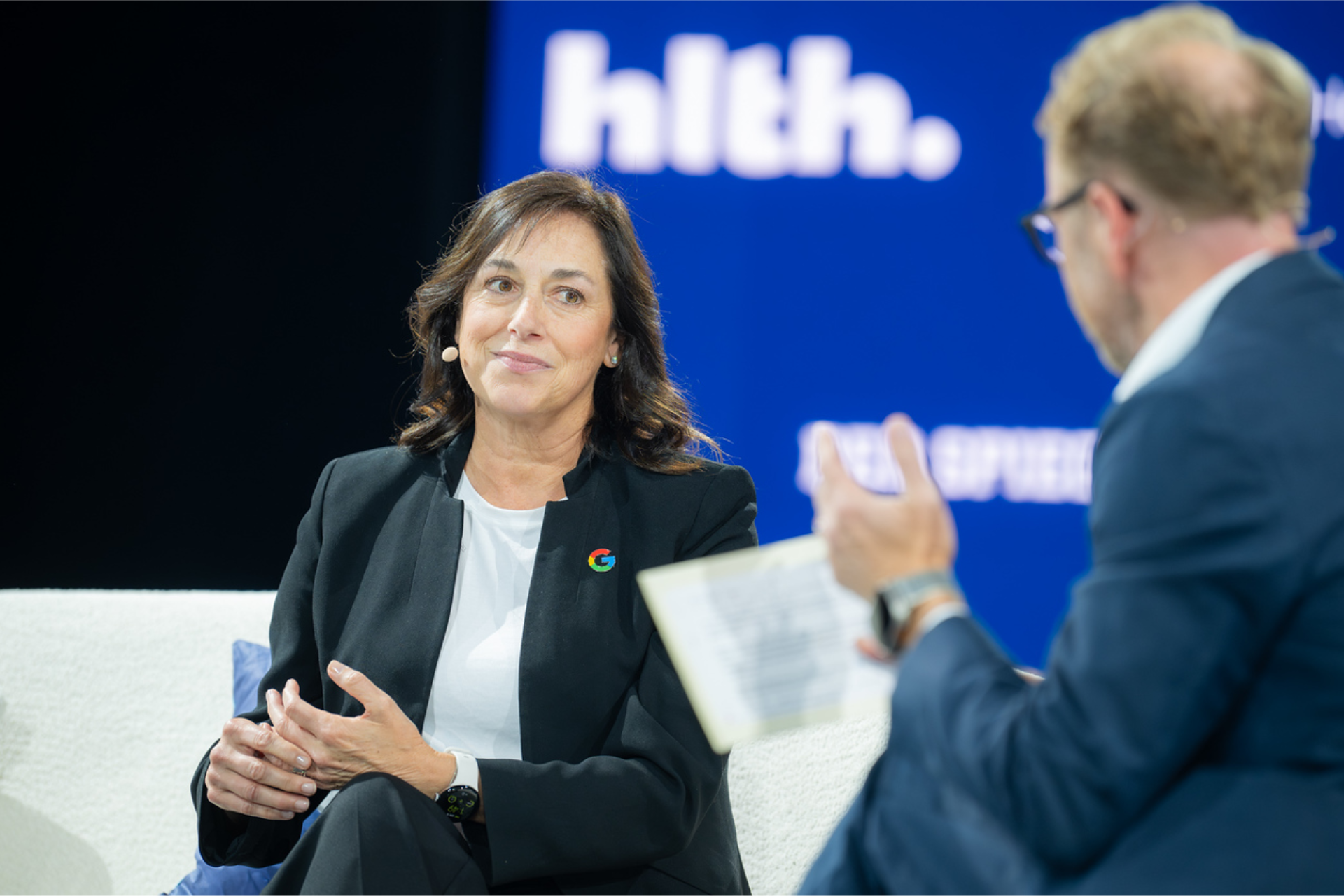"I regularly get asked when Google will start delivering care or making new devices of its own, but that's not our strategy," DeSalvo said in her key note at the recent HLTH Europe in Amsterdam. "Maybe that was still the case when I came to Google over four years ago. The question was often: what software device will we build next to improve healthcare? Then came covid. The pandemic underscored the importance of information. Every day hundreds of millions of people come to us with questions. So information is the key to all our activities. We make it accessible to our users and partners. Ultimately, we want to empower our partners and customers by integrating our technology into their products or services."
Complex causes
When it comes to digital technology, the word artificial intelligence is also at the forefront of DeSalvo's mind. In a previous interview, she called the advent of AI as important to healthcare as the invention of penicillin. "Before the invention of penicillin, doctors often couldn't do more than watch and wait," DeSalvo clarified. "They had few resources in fighting infectious diseases. Today, people die not from infectious diseases but from multiple complex causes, such as too little exercise and poor nutrition combined with genetics and social determinants. A single drug can never answer such complex issues. What we need is the ability to bring together data from multiple sources and make meaning from them, not only clinically, but also at the personal level. The new AI tools can do that like no other. From a technology standpoint, it's a breakthrough anyway similar to the Internet and the smartphone."
No point solutions
Now let Google be active on those fronts as well, through Youtube and Pixelphone. In addition, the tech company has a range of activities that touch on healthcare, ranging from tracking devices(Fitbit), precision medicine(Verily) and biotechnology(Calico). That raises the question of whether the company has an overarching strategy. "The tricky thing about a company like Google is that we are both B2C and B2B," DeSalvo said. "We help consumers, citizens, scientists, businesses, healthcare providers, insurers and governments. We do that not so much by providing point solutions, but by making products that people use every day smarter."
Prevention
"We base our strategy on three Ps: partnerships, platforms, prevention. As for that prevention: Google is a life company, we are emphatically present in people's daily lives. The earlier we can support them on their life path, the more impact we have on health. We're thinking a lot about what AI can do in this regard. I'm an internist by birth. I saw mostly patients with complications due to diabetes and a laundry list of other chronic conditions. But when people went back home, I couldn't see how they were managing their nutrition or lifestyle. A company like Google can support people right in the home. That was also an important reason for me to switch to Google."
Challenges
The question remains of how a company like Google, with seemingly infinite resources and reserves, makes choices. That question is made all the more relevant by the rise of general purpose AI models. Because of their enormous versatility, they can be deployed in numerous ways. DeSalvo: "The new AI models can assess three-dimensional images, fill out forms, overhear sound files ... the possibilities are virtually endless. That's tremendously exciting. Not a day goes by without someone within Google wanting to show me a fantastic new AI model. But we do indeed have to make choices. We do that by looking at the big challenges around care and health. These are the same all over the world: staff shortages, burnout among professionals, rising healthcare costs and growing disease burden due to the rise of non-communicable, chronic diseases. So we always look to see if an initiative connects to any of these problems. In addition, we have four clinical focal points: metabolic diseases, mental health, maternal and child care and cancer."
Princess Máxima Center
To investigate what does and does not work in practice, Google is expressly seeking cooperation with partners. One such partner DeSalvo does not want to leave unmentioned at her appearance in Amsterdam. "At the Princess Máxima Center for Pediatric Oncology, where I was on a working visit, our people are investigating with a team of doctors how our Gemini model can help improve treatment by quickly searching professional literature and research. Just because something works in the lab doesn't mean it will work in the real world. Then it's great to see how such a broad AI model can help personalize treatment and actually help improve care for individual little patients."
Health is more than cure
Going through, classifying and streamlining information is one thing. Developing completely new interventions is another. Yet that's what Google is aiming for with a deep learning system like AlphaFold. Will AI smooth the laborious research on Alzheimer's, for example? "AlphaFold is now slowly starting to live up to its potential," DeSalvo said. "We are now seeing some drugs enter the clinical trial phase. The more researchers get to work with the model, the greater the chance of new drugs to cure diseases. But I hesitate to use the word 'cure.' People should not think that by building an AI model we are going to cure every disease imaginable. Besides, health is about so much more than drugs. AI for new drug development is just one of the tools in our toolbox. But there are so many more, such as broad dissemination of health knowledge or equal access to care and prevention. Therefore, we really hope that as many different parties as possible make use of our open source tools, because we definitely cannot cover all these areas alone."












